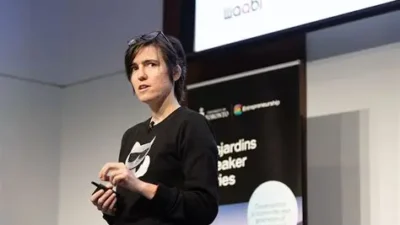Canada’s standing in artificial intelligence is under renewed scrutiny after reports confirmed Nvidia’s acquisition of Toronto-based CentML. The deal, estimated at over US$400 million, has reignited debate over the country’s role in global AI and raised concerns that Canada is becoming a pipeline for innovation rather than a powerhouse.
CentML, a fast-rising AI startup, specialises in optimising the deployment of large language models. Its technology is increasingly valuable as generative AI systems scale, making the company an attractive target. But as with previous exits, most notably the 2020 sale of Element AI to US firm ServiceNow, CentML’s departure risks stripping Canada of key intellectual property, engineering talent and long-term commercial value.
According to The Logic, the acquisition will see CentML’s core team, founders and technology relocate to Nvidia’s US operations. This mirrors a wider trend. While Canada trains some of the world’s leading AI minds, studies suggest up to 70 percent eventually join US firms or funding ecosystems. The issue, experts argue, is structural, not personal.
Canada’s lack of AI-class computing infrastructure is one of the most cited obstacles. The country holds less than 2 percent of the world’s high-performance GPU clusters, meaning local researchers often face long delays or are forced to rent expensive overseas compute power. “This is a sovereignty issue. Without infrastructure, we export our future,” wrote Mark Slipp, a Montreal-based tech founder, in a LinkedIn post on 29 June.
Funding gaps further compound the problem. While Canada offers early-stage support through accelerators and public grants, capital for scaling AI startups is harder to secure. Many promising firms exit early to access the resources they need, usually through foreign acquisition. Critics say Ottawa’s focus has leaned too heavily on immigration and branding while lagging on foundational investments like sovereign compute infrastructure and long-term commercialisation plans.
Some policymakers argue that high-profile acquisitions validate the strength of Canada’s research ecosystem. But AI researchers, founders and former investors are calling the CentML sale a wake-up call. A proposal to build a national GPU cluster has stalled for months while US tech giants continue to consolidate talent and tools. Without a shift in strategy, they warn, Canada risks permanently falling behind.
International comparisons paint a stark picture. The US and China dominate both compute capacity and talent retention. The European Union is investing over €1 billion to build its own sovereign AI infrastructure. Meanwhile, Canada continues to contribute cutting-edge academic work without translating that into domestic growth. The CentML deal, many say, symbolises this imbalance.
With global competition intensifying and AI adoption accelerating, Canada faces a clear choice. It must invest deeply in the infrastructure, funding and policy needed to build home-grown AI success. Otherwise, it risks a future as a perpetual exporter of talent and ideas. The CentML exit may prove to be a pivotal moment. Whether Canada responds with urgency remains to be seen.





